
Try-It Diet: Vegan
A two-week healthy eating plan
Adams Media, an imprint of Simon & Schuster, Inc.

Avon, Massachusetts
Contents
Introduction
A Try-It Diet is just that a diet that you can try out for two weeks to see if it is a good fit for you. Keep in mind that not every diet is right for every person; please consult with your doctor before making radical changes to your diet. Ask 100 vegans why they pass on animal foods and you may get 100 different answers. Animal suffering, environmental waste, and personal health usually top the list. Global poverty, food safety and sanitation, or food allergies also are valid reasons to reduce reliance on animal foods. People of Western faiths may cite the biblical order for stewardship over creation, while others commit to the Eastern spiritual principle of ahimsa, that is, nonviolence and harmlessness.
Call it the vegan Hippocratic oath. From significantly reduced rates of hypertension, arterial hardening, stroke, type 2 diabetes, obesity, heart disease, and several types of cancer (prostate and breast cancer are the best documented), a plant-based diet helps prevent the vast majority of life-threatening diseases that plague modernity. Medical research and the American Dietetic Association affirm that a plant-based diet prevents many ailments, helps reverse some, and eases the symptoms of others. Veganism isnt a bulletproof vest in protecting against these killers, but it just may be the best bet. If youre used to eating eggs for breakfast and steak for dinner, you may be wondering, whats left? Rest assured that with a little ingenuity, a plant-centered diet will bring more color, spice, and variety to your plate than ever before. As a matter of habit, most people reach for the same few foods day after day, but all that stops now! A nearly infinite array of grains, herbs, fruits, vegetables, beans, and legumes from around the world is at your fingertips.
There are dozens of varieties of beans alone navy, cannellini, kidney beans, black beans and many other pulses, such as chickpeas and lentils, each with its own distinct flavors and textures. Theres no need to ever ask What do vegans eat? Its simpler to question what vegans dont eat, as the list is much shorter! Instead of packaged and processed foods, vegans eat mostly whole foods (fruits, vegetables, beans, nuts, grains) and dairy- and egg-free versions of traditional favorites (cheeseless pizza, bean burritos minus the cheese) flavored with herbs and spices from around the world. Vegans today can savor hundreds of vegan substitute products, including nondairy cream cheese, beef jerky, and vegan white chocolate. Despite a national obsession with protein, most Americans eat much more than recommended, and deficiency in vegans is rare. Professional body-builders and pregnant women aside, most vegans easily meet their daily requirement of protein, but youll need to be aware of your zinc, vitamin D, iron, and calcium intake, and foremost, vitamin B. Though not readily supplied by a vegan diet, vitamin D is easily obtained from sunlight.
Step outside for a few minutes a day and youre set for vitamin D. Similarly, many soy foods are fortified with calcium, another important nutrient for dairy-free folks, and broccoli, tofu, tahini, almonds, and dark leafy greens provide a good natural source. But to build strong bones, you need exercise as well as calcium, so vegan or not, diet is only half the equation. When it comes to iron, most vegans and vegetarians actually get more than omnivores, but to be on the safe side, lentils, chickpeas, tahini, and once again, those dark leafy greens like spinach and kale are good vegan sources. Noticing a pattern? Dark leafy green vegetables are one of the most nutrient-rich foods on the planet. Find ways to include kale, spinach, or other greens in your diet by snipping them into pasta sauces and casseroles, or include a few spinach leaves along with your other salad greens.
Fish oils and fish such as salmon are often touted as a source of healthy omega-3 fatty acids, but vegetarians and vegans can obtain these from flaxseeds and flax oil, as well as walnuts or hempseeds. Vitamin B cannot reliably be obtained from vegan foods. Deficiencies of this important nutrient are admittedly rare, and, if youre eating vegan meals only occasionally, you dont need to worry. Vegetarians will absorb B from food sources, but long-term vegans, and pregnant and breastfeeding women, in particular, need a reliable source. Take a supplement or eat fortified foods, such as nutritional yeast. The health advantages of a plant-based diet are endless.
The average vegan gets twice as much fiber as most omnivores. A vegan diet is naturally cholesterol free, and is almost guaranteed to lead to marked decreases in cholesterol levels in just two weeks. Blood pressure, too, is shown to decrease drastically in a short period of time on a plant-based diet. You do need to eat a balanced diet in order to reap these benefits. After all, French fries and potato chips are animal free, but that doesnt make them healthy. When it comes to vegan nutrition, variety is key.
Make sure your protein sources are varied, rather than from just one food group. Eat a rainbow of fruits and veggies, and include green leafy vegetables as often as possible. If youd like to explore veganism in more detail, check out The Everything Vegan Cookbook , available in print (ISBN: 978-1-4405-0216-3) and eBook (eISBN: 978-1-4405-0217-0) formats.
Weekly Meal Plans
Week 1
Sunday
Breakfast
Lunch
Dinner
Dessert
Monday
Breakfast
Lunch
Snack
Dinner
Tuesday
Breakfast
Lunch
Snack
Dinner
Wednesday
Breakfast
Lunch
Snack
Dinner
Thursday
Breakfast
Lunch
Snack
Dinner
Friday
Breakfast
Lunch
Snack
Dinner
Saturday
Breakfast
Lunch
Dinner
Dessert
Week 2
Sunday
Breakfast
Lunch
Dinner
Dessert
Monday
Breakfast
Lunch
Snack
Dinner
Tuesday
Breakfast
Lunch
Snack
Dinner
Wednesday
Breakfast
Lunch
Snack
Dinner
Thursday
Breakfast
Lunch
Snack
Dinner
Friday
Breakfast
Lunch
Snack
Dinner
Saturday
Breakfast
Lunch
Dinner
Next page
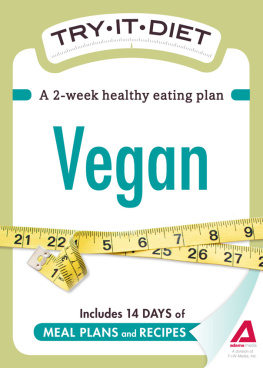
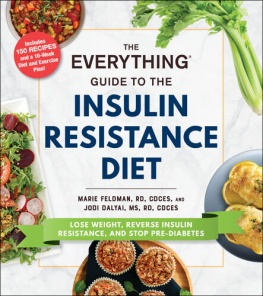
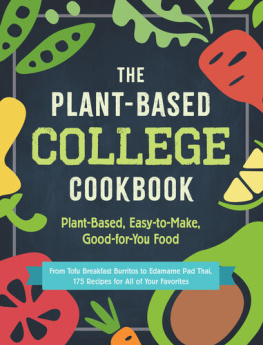
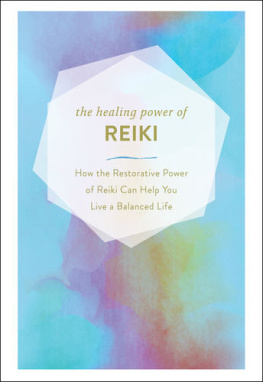
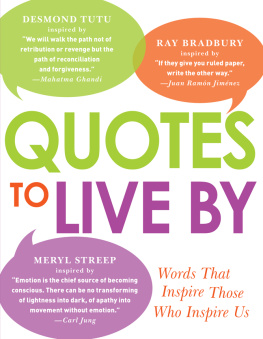
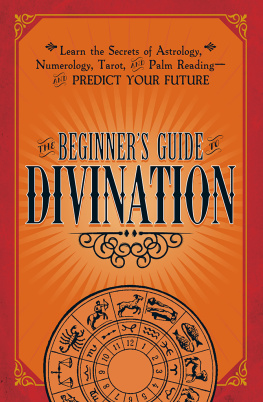
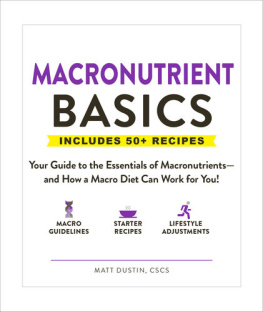
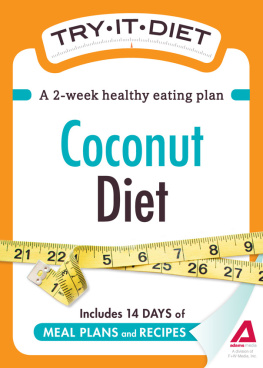
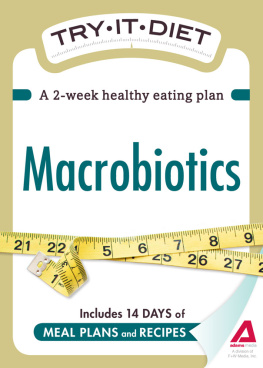
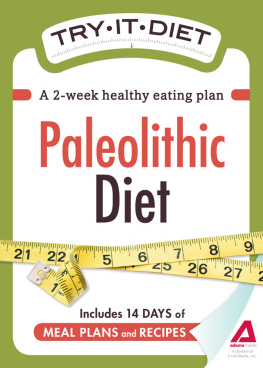
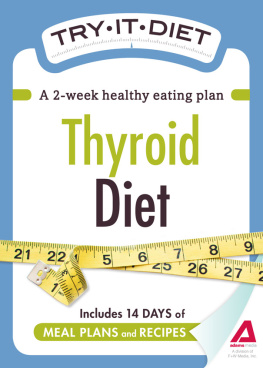
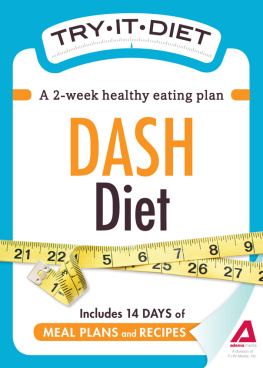
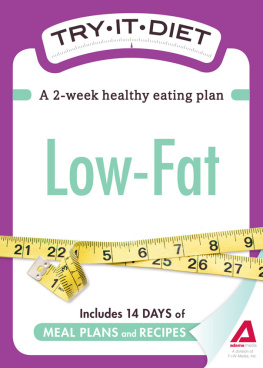
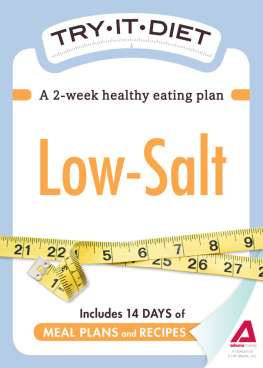
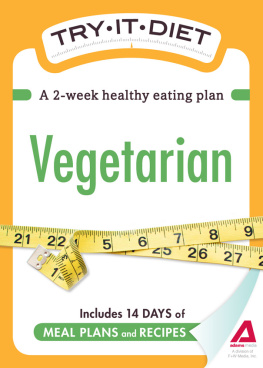
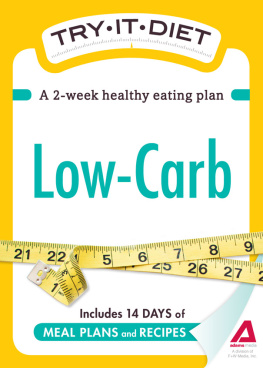
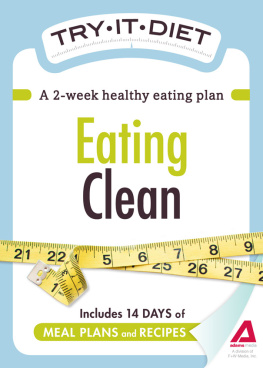
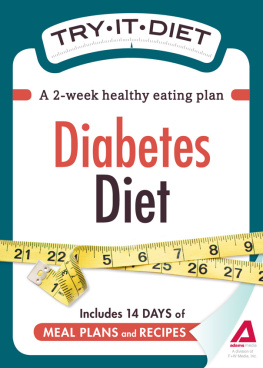
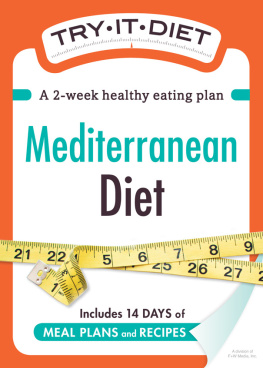

 Avon, Massachusetts
Avon, Massachusetts